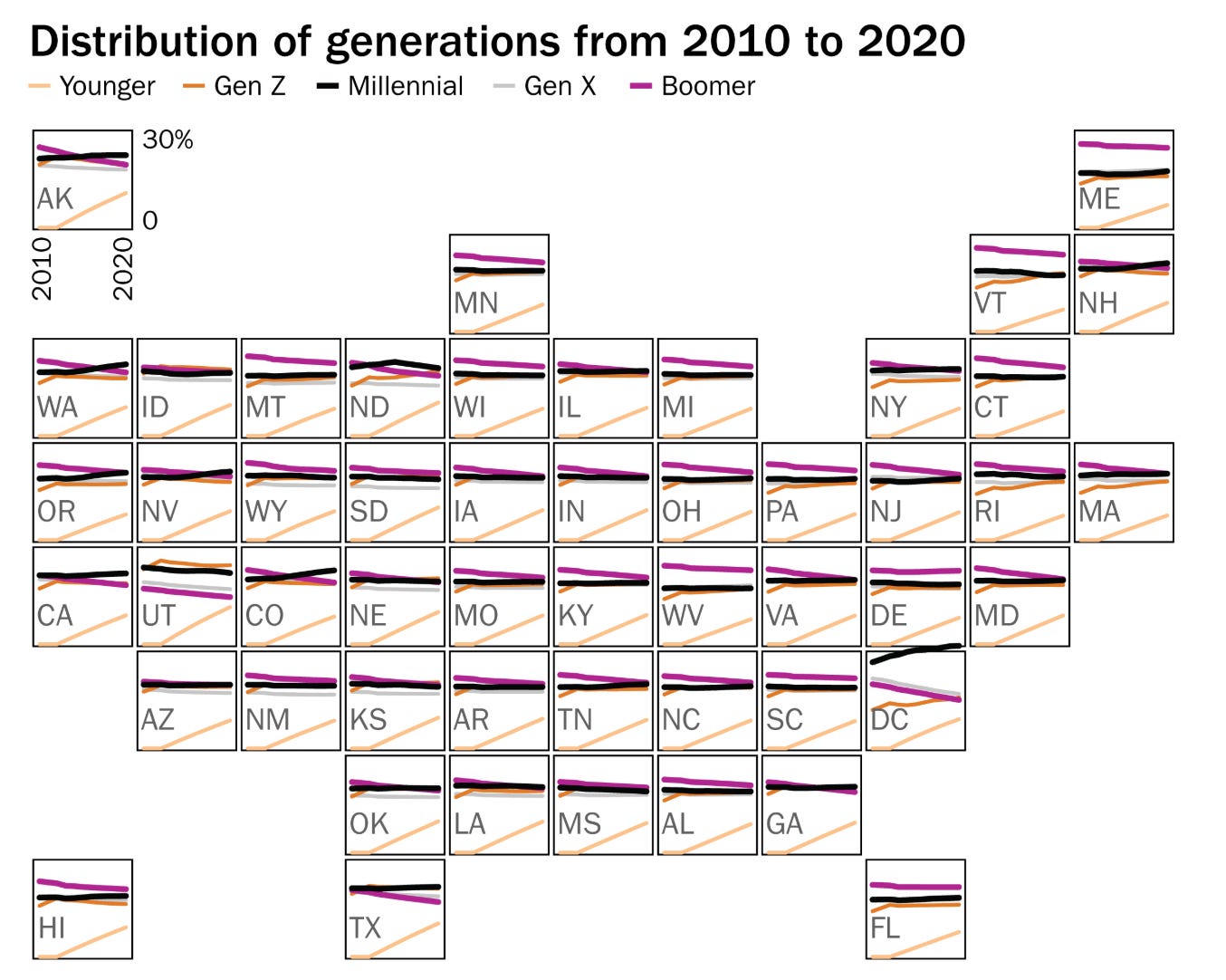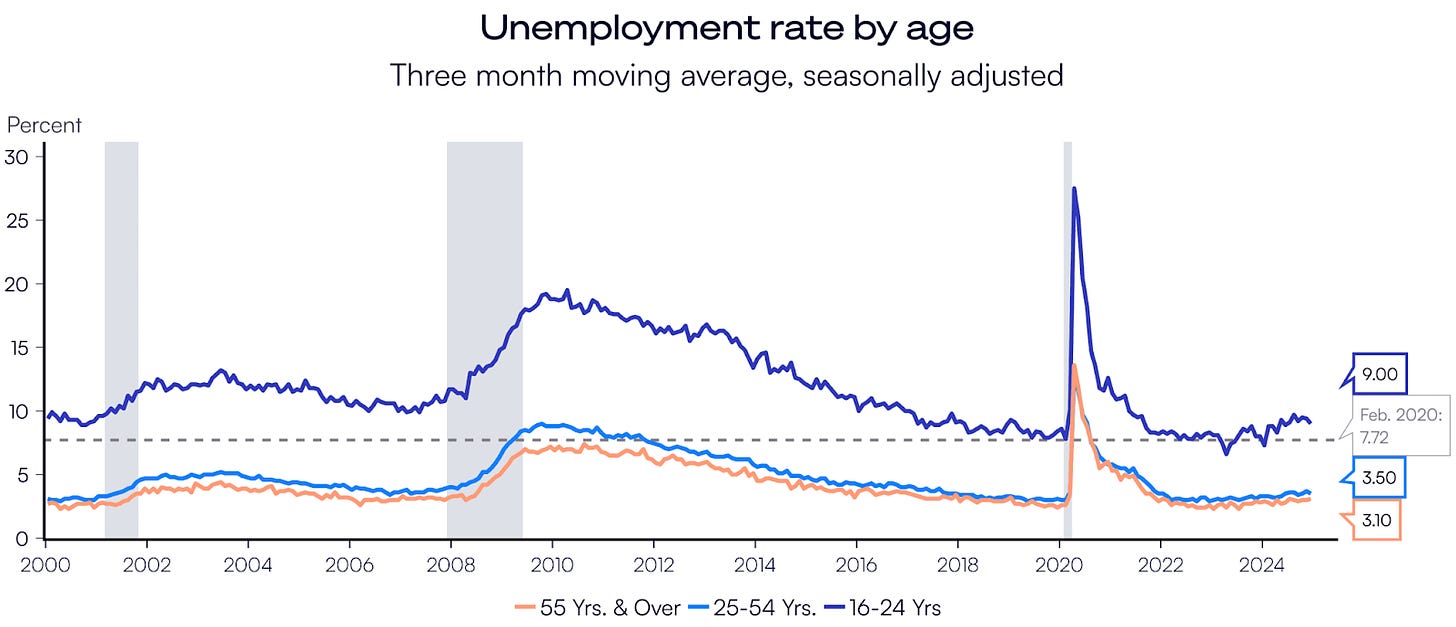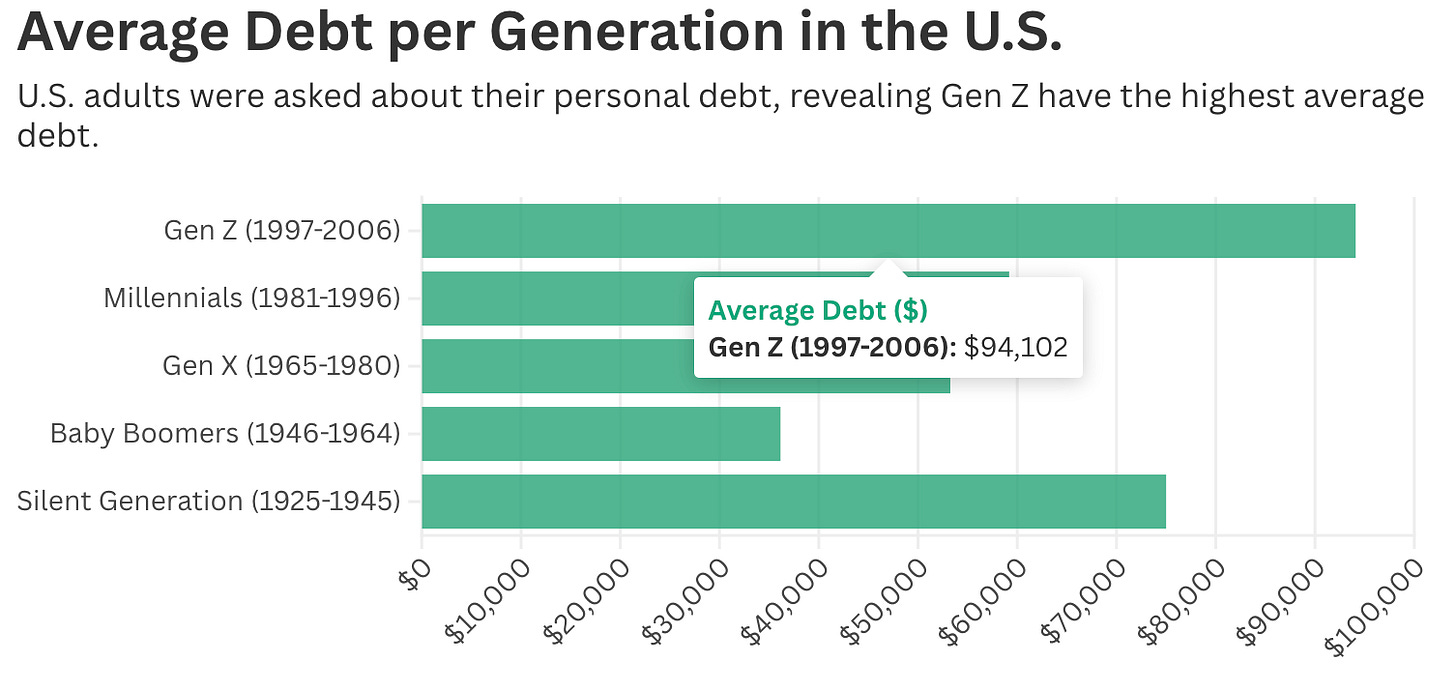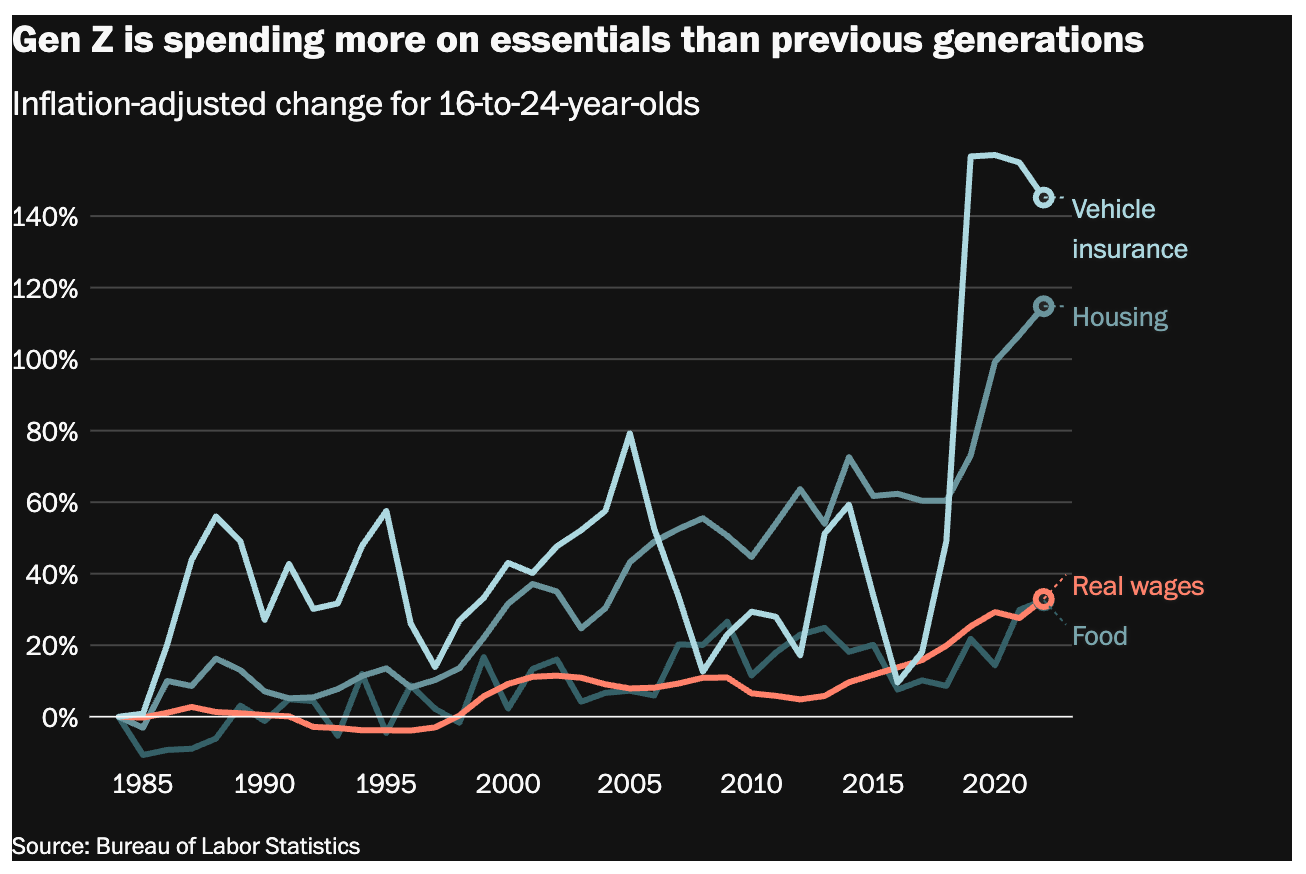Gen Z and the Affordability Crisis
Housing, student debt, and a turbulent employment environment need a reset
Marie Newman is a former congresswoman (D-IL03), nonprofit CEO, marketing executive, author of A Life Made from Scratch and When Your Child Is Being Bullied: Real Solutions, former Moms Demand Action spokesperson, health equity champion and national LGBTQ+ advocate. In addition to those roles, she is a mom of two adult children, consultant and podcaster. Her Substack is .
Written by , Data charts provided by .

We have a crisis on our hands that has not received enough attention. Gen Z cannot afford their lives. Period. Worse, the generations before them have, unfortunately, contributed to this crisis. We have all voted for and elected politicians who have genuinely not listened to their voters, but did what their donors asked, causing not just a daunting income gap, but an affordability chasm.
So here we are.
Income inequality has become a pronounced concern worldwide, impacting various generations differently. Among these, Generation Z (born approximately 1997–2012) faces a unique economic landscape shaped by technological advancements, global crises, and shifting job markets. Comparing their experiences to those of Millennials, Generation X, and Baby Boomers highlights important disparities and challenges.
I see this front and center in my own family. My kids are challenged by high rent, car prices, food prices and being able to afford insurance in their twenties.
My son, who has a master’s degree in political science and international affairs had to move to a smaller city in a neighboring state in order to get a job in his field, and be paid enough to be able to afford rent, food and daily expenses. He is working hard and making ends meet, but just barely. He is finding it nearly impossible to save or plan for his future due to the state of our country’s economy, stagnant wages and the skyrocketing cost of housing.
My daughter has a year of college under her belt, is very bright and is willing to work hard, but finding a job that will allow her to live on her own is very tough, but we believe she will prevail out of pure will and tenacity. She may need to tether together two gig jobs to make it all work.
As I always say, everybody’s everyday is too expensive and can be demoralizing.
Let’s break it down…
The Economic Environment for Gen Z
1. Entry into the Workforce During Turbulent Times
Gen Z's transition into employment has coincided with major global upheavals. The COVID-19 pandemic resulted in significant job disruptions; the International Labour Organization (ILO) reported that youth unemployment globally spiked to 14.2% in 2020, compared to 8.2% for adults. Many young workers have been pushed into unstable gig roles, which often lack stability and benefits, impacting earnings and career progression.

2. Education and Student Debt
Gen Z is the most educated generation, with about 60% in the U.S. pursuing post-secondary education, according to the Pew Research Center. However, the average student loan debt for new graduates has increased dramatically; the Federal Reserve reports that the average student loan debt reached $37,338 per borrower in 2023, up from roughly $24,000 in 2010. This debt burden hampers wealth accumulation and homeownership opportunities.

3. Housing and Cost of Living
Housing affordability has worsened. The National Association of Realtors (2024) notes that median home prices in the U.S. increased approximately 50% from 2015 to 2024, while wages for young workers grew at a modest rate, about 15% over the same period (U.S. Bureau of Labor Statistics). This disparity makes saving for a house significantly harder for Gen Z.

4. Technological Economy and New Opportunities
Digital platforms have created income streams—YouTubers, TikTok influencers, and online entrepreneurs—but earnings are often inconsistent. For instance, a 2023 survey by Statista indicated that only 15% of Gen Z online creators earn a sustainable income, despite many more believing that this can be a viable financial future for them. Economic precariousness is the reality amidst the digital boom.
Income Inequality Compared to Other Generations
1. Wealth Accumulation and Intergenerational Transfer
Data from the Federal Reserve’s 2022 Survey of Consumer Finances shows that the median net worth for Baby Boomers (age 58-76) was approximately $288,700, compared to just $13,900 for Gen Z (age 18-26). Moreover, inherited wealth continues to benefit older generations: approximately 70% of Millennial and Gen Z wealth is not inherited, compared to less than 30% for Boomers, underscoring a growing wealth gap.
2. Income Disparities
The top 1% of earners in the U.S. capture about 20% of the total income, according to the Economic Policy Institute (2023). Meanwhile, median wages for young workers (ages 16-24) have stagnated, growing only about 1% annually since 2010, far below the growth rate needed to keep pace with inflation and living costs.
3. Social Mobility and Opportunity
The OECD reports that the U.S. has one of the lowest social mobility rates among developed nations. For Gen Z, mobility prospects are further diminished; a 2022 study in the Proceedings of the National Academy of Sciences indicates that economic mobility for U.S. youth has declined by nearly 25% over the past 50 years, making upward movement more difficult than in previous generations.
Broader Impacts and Future Outlook
The rising income inequality impairs Gen Z's ability to accumulate assets, achieve homeownership, and secure financial independence. The World Bank estimates that global wealth inequality has increased by around 10% since 2010, with young people bearing the brunt.
The Path Forward
In some ways, there is a simple solution. Bring Gen Z into the conversation. Here is a path forward that can create more economic opportunity not only for Gen Z, but for America writ large.
Elect Gen Z and Millennial candidates. This will ensure more representation for these types of issues and bring a much needed spotlight to people’s experiences.
Completely transform campaign finance law: outlaw corporate PACs, dark money and Super PACs. Once politicians are no longer beholden to maleficent money, then they will have to listen to voters like Gen Z, act on their wishes and start addressing the income chasm crisis with bold action.
The tougher part is getting Gen Z and Millennials elected to state houses and Congress.
My solution: I am only working with and supporting candidates that support the above goals, and interestingly, most are Gen Z and Millenials.
Keep charging folks!








I have been spending a lot of my time learning and worrying about the economics of being Gen Z. I appreciate this post and will use it to inspire more of my other reading and research.
Nice article highlighting all the Gen Z struggles. Like Dr. A, I'm going to use it for inspiration!